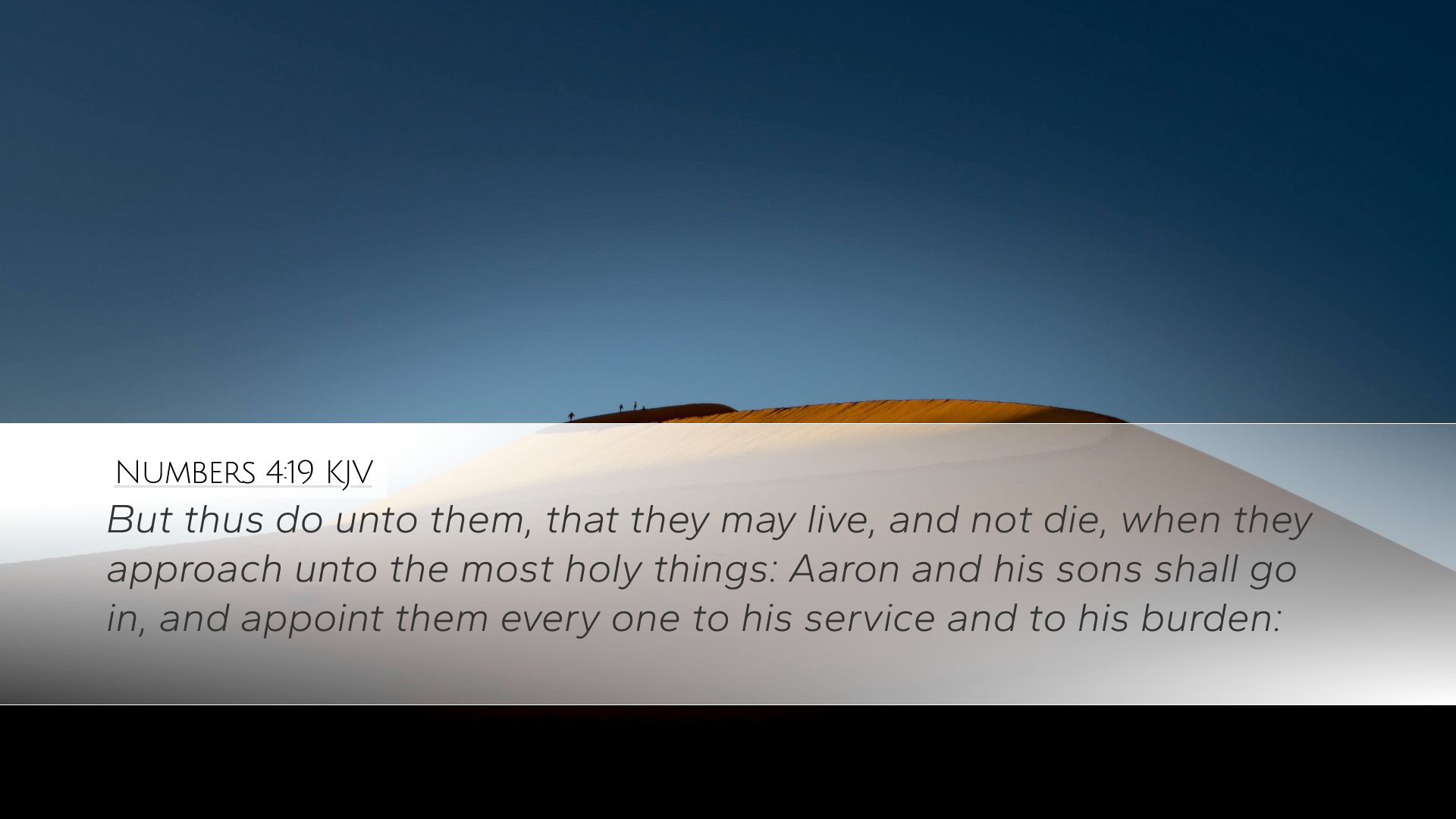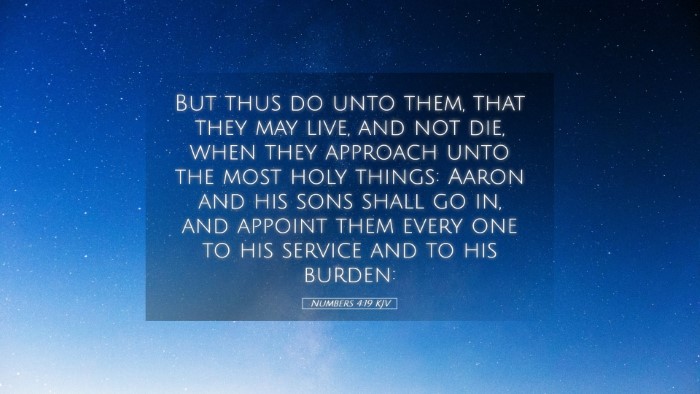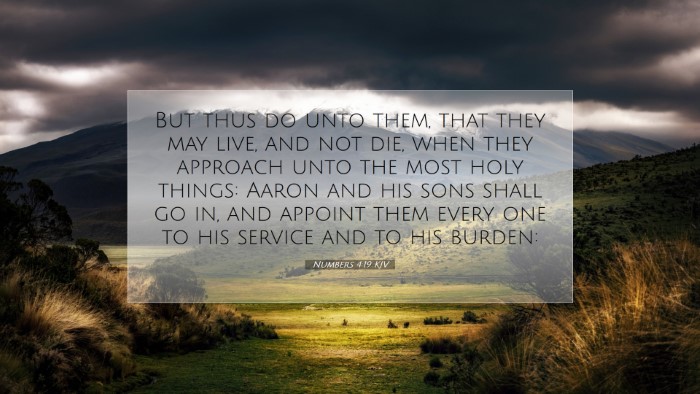Bible Commentary on Numbers 4:19
Verse Context: Numbers 4:19 states, "But thus do unto them, that they may live, and not die, when they approach unto the most holy things: Aaron and his sons shall go in, and appoint them every one to his service and to his burden." This verse emphasizes the critical need for carefulness and reverence in approaching the sacred duties related to the tabernacle, particularly in the service of the Levites.
Introductory Remarks
The book of Numbers serves as a detailed record of the Israelites during their journey through the wilderness. This section particularly underscores the responsibility assigned to the Levites, emphasizing their role in protecting the sanctity of the worship systems established by God. Understanding this verse requires examining the broader context of Israelite worship and priestly duties.
The Nature of Sacred Duties
Matthew Henry's Insights:
- Matthew Henry highlights the importance of proper conduct in handling sacred objects and responsibilities. He emphasizes that God assigns duties with a view toward His glory and the wellbeing of His people.
- Henry suggests that the careful organization of the Levites’ tasks not only serves functional purposes but also reflects the holiness required in worship practices.
- He points out that the reference to "living and not dying" indicates the severe consequences of neglecting God's ordained framework in religious activities.
Divine Protection and Order
Albert Barnes' Observations:
- Barnes remarks on the divine provision embedded in these instructions. He notes that the roles assigned to Aaron and the priests are critical to ensure that the people do not approach the sacred items unjustly.
- He elaborates on how this verse reflects God's loving disposition toward order and safety, encouraging adherence to His stipulations in worship.
- The directive for Aaron and his sons to oversee the Levites’ tasks demonstrates a hierarchy within the priestly system designed to maintain purity and prevent presumable presumptuous actions leading to death.
Lessons on Service and Responsibility
Adam Clarke's Commentary:
- Clarke emphasizes the spiritual symbolism of the Levites' service, stating that it signifies the laborious paths believers take in their spiritual journey.
- He notes that the Levites’ role parallels the contemporary calling of teachers and leaders in the church to guide congregants in their relationship with God.
- According to Clarke, the emphasis on “burden” indicates both the seriousness of ministry and the weight of responsibility that comes with spiritual leadership.
Theological Implications
This verse, when analyzed alongside the commentaries, reveals profound theological insights:
- The Holiness of God: The careful instructions emphasize the necessity of holiness in worship. Any trivial or negligent acts towards sacred duties could result in dire consequences.
- The Role of Authority: The establishment of roles within the Levites highlights God's desire for order and structure in spiritual communities, revealing that divine authority is pivotal for the functionality of worship.
- Preservation of Life: The insistence on safeguards against death reiterates the theme of God's grace and mercy, as He provides guidelines for His people to avoid spiritual and physical detriment.
- Call to Reverence: This mandate serves as an enduring call for modern believers to approach spiritual matters with reverence and intentionality, acknowledging the sacredness of their faith commitments.
Applications for Today’s Ministry
Given the insights gleaned from the various commentaries, a few practical applications emerge:
- Church leaders should diligently train and prepare their teams for service roles, instilling a deep understanding of the seriousness associated with ministerial tasks.
- Congregants are encouraged to approach their worship and service with intentionality, recognizing the profound implications of engaging with holy things.
- There should be a consistent reflection on the sublime nature of God when structuring worship services, ensuring all acts of service align with His guidance and glorify Him.
- Pastoral care should include reinforcing the message of holiness, helping believers to understand their roles as participants in a sacred calling.
Conclusion
Numbers 4:19, embedded within the greater narrative of Israel's covenant community, imparts essential truths about holiness, reverence, and service within spiritual leadership. This passage, as explored through the integration of various esteemed commentaries, continues to offer relevant principles that guide both personal faith practices and corporate worship within today's church contexts.


